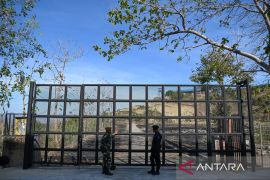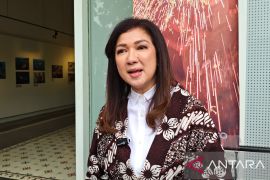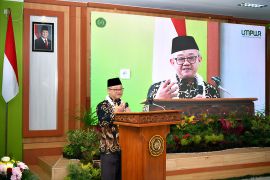Unless efforts are made to destroy the breeding grounds of Aedes aegypti mosquitoes, which carry the acute infectious disease, it will undeniably continue to hit many parts of the country.
Dengue cases in Indonesia, which is a tropical country with a fast growing population, increase from time to time.
Therefore, people in various provinces have been warned to remain vigilant against the disease, which is characterized by sudden onset of headache, joint pain, and rashes.
In January this year, the disease claimed the life of Juliadi, a six-year-old boy in Kotawaringing Timur district, Central Kalimantan province.
Juliadi died of dengue at Dr Murjani General Hospital, where at least 28 patients of the same disease were being treated in the city of Sampit.
The next month, a total of 89 dengue fever patients were admitted to Doris Sylvanus General Hospital in Palangkaraya, also in Central Kalimantan.
Later, during September-November 2012, at least 15 dengue fever cases were reported in Palangkaraya.
"Health officials have gone to the field to collect data from hospitals and clinics. So far, at least 15 cases have been reported," Palangkaraya Health Office spokesman Sudarmini said.
She noted that at least 100 dengue fever patients were admitted to hospitals and two of them died this year.
Back in April, the disease spread across 57 sub-districts in Malang city, East Java, where 31 people were reported to be infected. However, there were no fatalities reported.
Malang health office spokesperson Enny Sekar Rengganingati said the local residents were instructed to destroy the breeding grounds of Aedes aegypti mosquito.
�However, the number of dengue cases reported in Malang this year is lower than that of previous years. In 2011, 163 people were infected by the disease and one fatality was reported,� he noted.
Meanwhile, 95 people in the city of Bukittinggi, West Sumatra, were reported to have been infected by dengue fever this year. However, in 2011, the figure was 74.
Bukittinggi health office chief Syofia Dasmauli said on Monday that the number of dengue fever cases increased in the city because of high rainfall and the lack of people`s awareness about the importance of keeping water storage facilities clean.
"Water storage areas are prone to becoming the breeding grounds of Aedes aegypti mosquitoes, so they should have proper drainage systems and should be kept clean," she said.
According to Syofia, the dengue fever has been endemic in Bukittinggi city over the past seven years, the number of reported cases continuing to rise every year.
"Bukittinggi was declared as a dengue-endemic area in 2005 because of global warming," she noted.
Meanwhile, Bengkulu district health office chief Nixon Syahbudin said a total of 441 people during January-November 2012 had been infected by the dengue virus, with three fatalities reported.
In the same period last year, there were 367 cases of dengue fever and seven people died of the disease.
Nixon said the data on the number of dengue cases was discovered after the patients were admitted to a number of hospitals and clinics in several districts across the province.
He noted that the number of dengue cases in Bengkulu continued to increase from 353 in 2010 to 367 in 2011, and then up to 441 in 2012.
With the increasing number of the cases, the target of Bengkulu provincial government to be free from the dengue fever in 2014 will remain obscure.
In Mukumuko district, during the January-December 2012 period, a total of 62 people were reported to be suffering from dengue and one of them died of the fever.
Mukumuku health office spokesman Sabrin said the cases were spread across 12 of the district�s 15 sub-districts.
Meanwhile, 14 people were reported to have died of the dengue fever during April-November 2012 in West Kalimantan.
Provincial health office cheif Andi Jap said in Pontianak late last month that the number of dengue fever cases in the province increased by 100, compared with the 700 cases reported last year.
"Dengue fever cases, as of November 2012, have reached 800, up from 700 in 2011. The sub-districts of Ketapang and Kayong Utara have been the hardest hit," Andi Jap noted.
However, the number of dengue fever fatalities during January-October 2012 in Riau province was reported to be 17 higher than that of West Kalimantan.
"Of the 862 cases during the period from January to October this year, 17 have died of the disease," Riau Disease Control and Prevention Board spokesman T Zul Effendy said in Pekanbaru recently.
The incidence of the disease peaked last year, with 2,948 cases, including 57 fatalities.
Dengue fever outbreaks usually occur after the rainy season, so people should be particularly careful during that period.
(O001/INE/a014)
Reporter: by Otniel Tamindael
Editor: Suryanto
Copyright © ANTARA 2012











